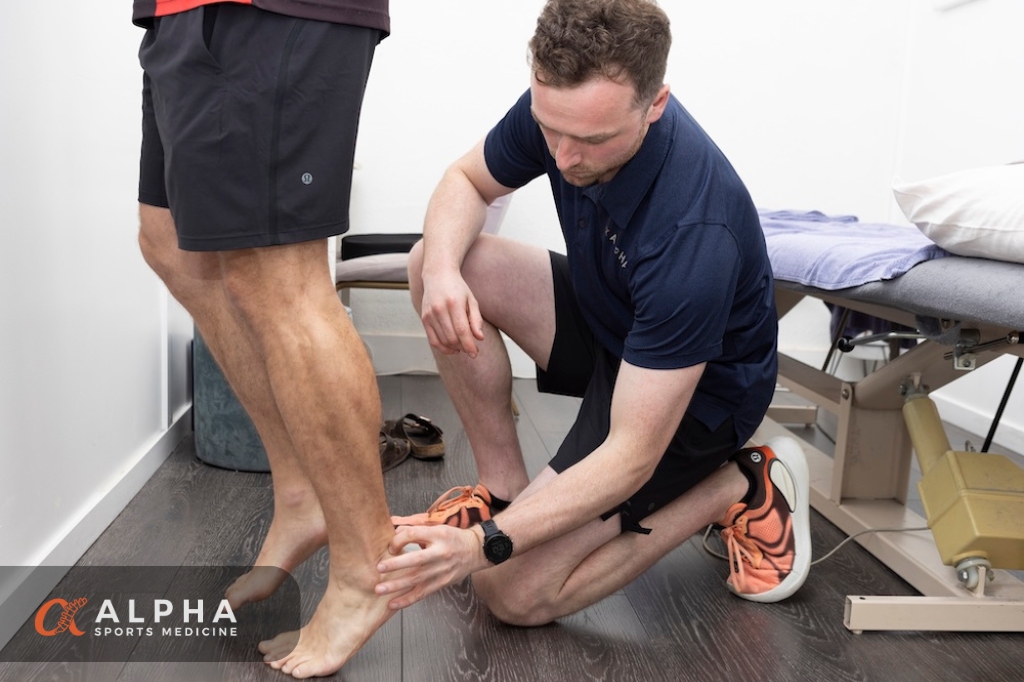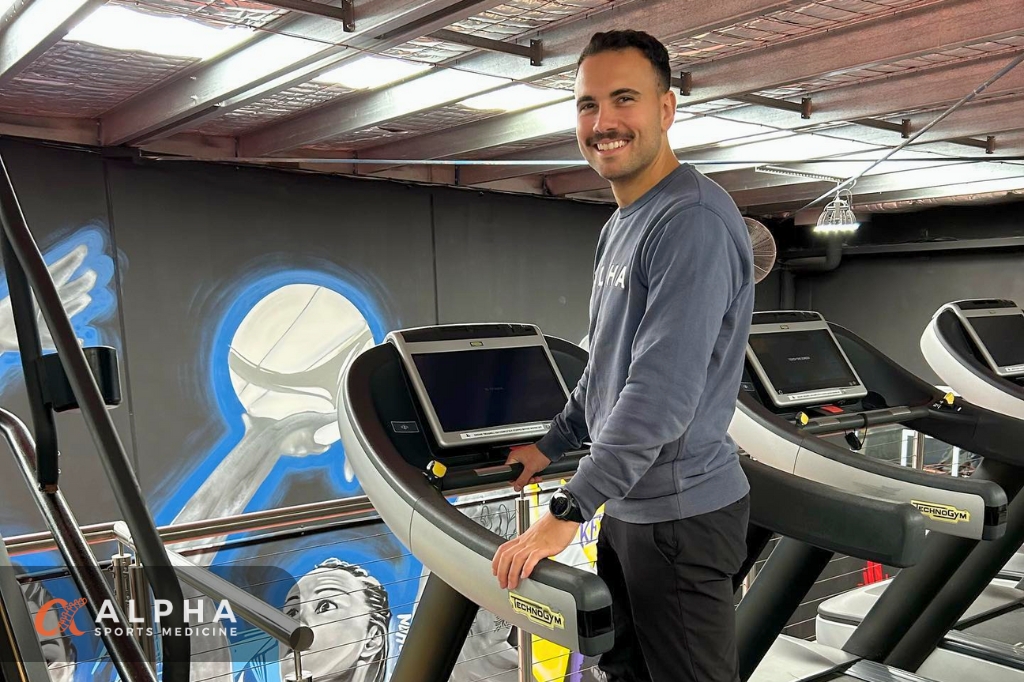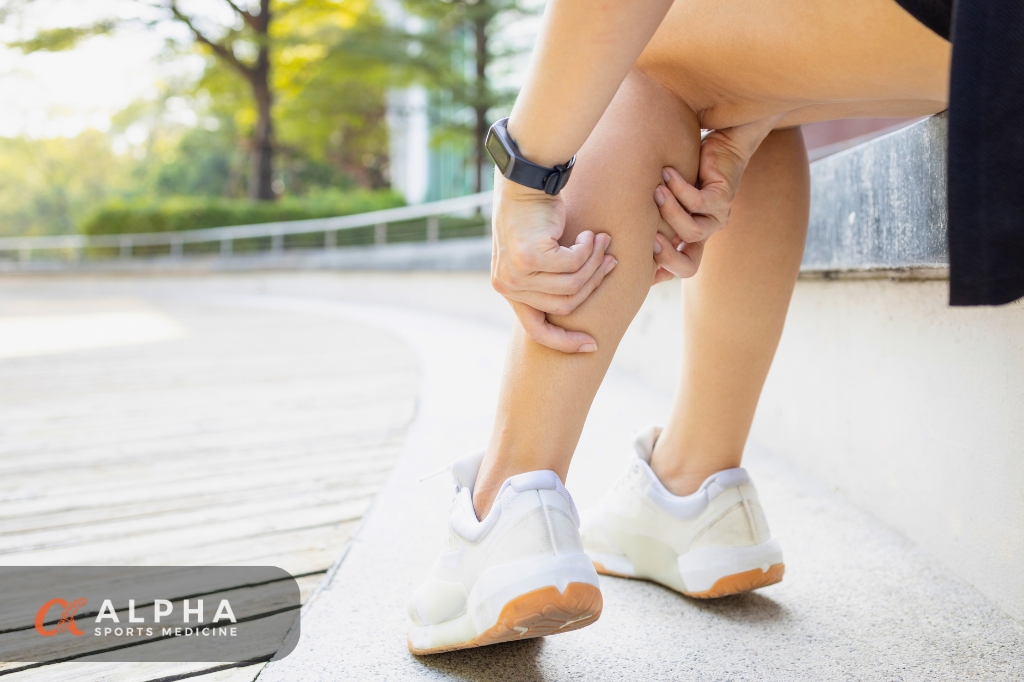Running Injury Treatment
Running Injuries
Professional Care for Runners in Newport, Ascot Vale and Bacchus Marsh
Running is one of the simplest and most effective ways to stay fit — but it also comes with its own set of common injuries. At Alpha Sports Medicine, as mostly runners ourselves, we are experienced practitioners in treating runners of all levels, from casual weekend joggers to seasoned marathoners and track athletes. If pain is interfering with your stride, we’re here to help you recover, rebuild and get back to running stronger than ever. We are involved with a number of local run clubs, including our own run club Run West in Maribyrnong.
Our team of Physiotherapists, Osteopaths, Chiropractors, Exercise Physiologists and Myotherapists collaborate to provide evidence-based treatment and rehabilitation for a range of running-related injuries.
Physio, Osteo, Chiro, Exercise Physio, Myotherapy
Understanding Running Injuries ?
Running injuries refer to musculoskeletal conditions that develop due to the repetitive stress and impact of running. These injuries can affect muscles, tendons, ligaments, bones, and joints—most commonly in the lower limbs. Whether you’re a seasoned runner or just starting out, improper technique, poor footwear, sudden increases in training volume, or underlying biomechanical issues can all contribute to injury. Early assessment and treatment are key to recovery and preventing long-term issues.
Running Injuries Symptoms
Persistent or sharp pain in the knees, hips, ankles, or feet
Swelling or inflammation in the affected area
Stiffness or reduced range of motion
Pain that worsens during or after running
Muscle tightness, cramping, or weakness
Discomfort that causes a change in running gait or posture
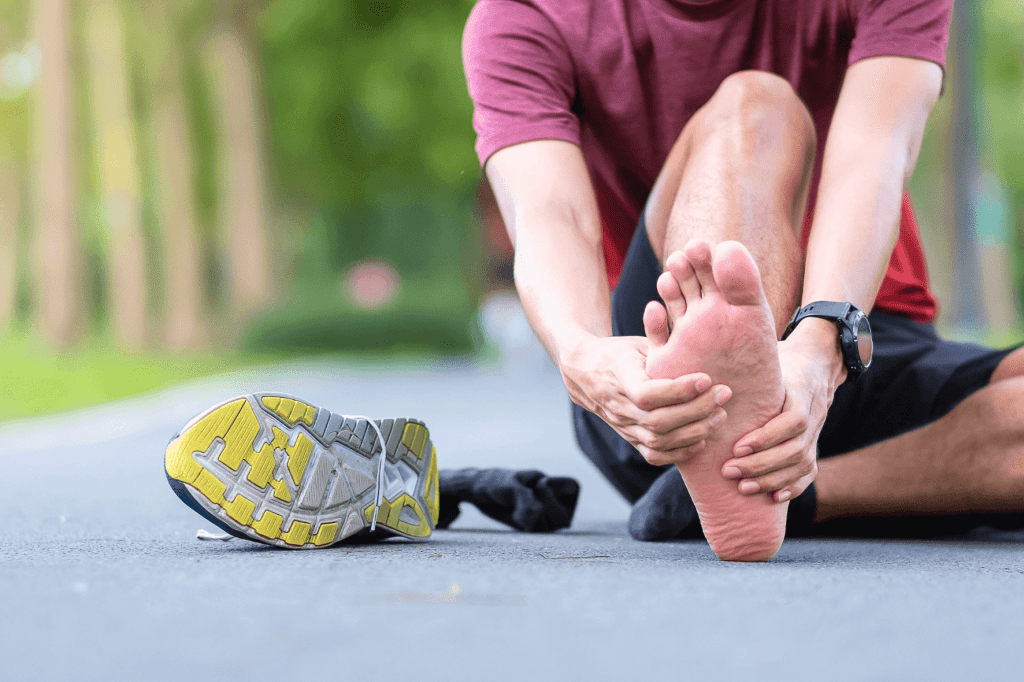
Common Running Injuries We Treat
Running injuries can occur under various circumstances, including:
Runner’s knee is a broad term for pain around or behind the kneecap, often caused by poor biomechanics, overload, or muscular imbalances. We assess your gait, address any contributing movement dysfunctions, and create a rehab plan to restore pain-free running.
Pain along the outer thigh or knee is often caused by irritation of the iliotibial band, especially in runners who’ve recently increased their mileage. Treatment involves manual therapy, strength work for the hips and glutes, and training load management.
Pain on the outside of the hip, especially when running, walking upstairs or lying on your side, is often a sign of gluteal tendinopathy. We treat this with load-specific rehab exercises, manual therapy and movement retraining to restore glute function and reduce tendon irritation.
Stabbing pain under the heel, especially with your first steps in the morning, is a hallmark of plantar fasciitis. We use a combination of hands-on treatment, foot and ankle mobility drills, and progressive strengthening exercises to support healing and prevent re-aggravation.
A common overuse injury in runners, Achilles tendinopathy causes pain and stiffness in the back of the ankle. We provide evidence-based loading programs, heel lifts, manual therapy and advice on footwear and running technique to support tendon recovery.
Postural fatigue and poor thoracic mobility can lead to discomfort in the upper back and neck during or after runs. We assess your running posture, breathing mechanics and spine mobility, and integrate manual therapy with corrective exercises.
Turf toe is a sprain of the big toe joint, often caused by repetitive pushing off or sudden hyperextension. Although more common on artificial surfaces, it can affect distance runners and sprinters. We provide joint support strategies, mobility drills and return-to-run progressions to manage this injury effectively.
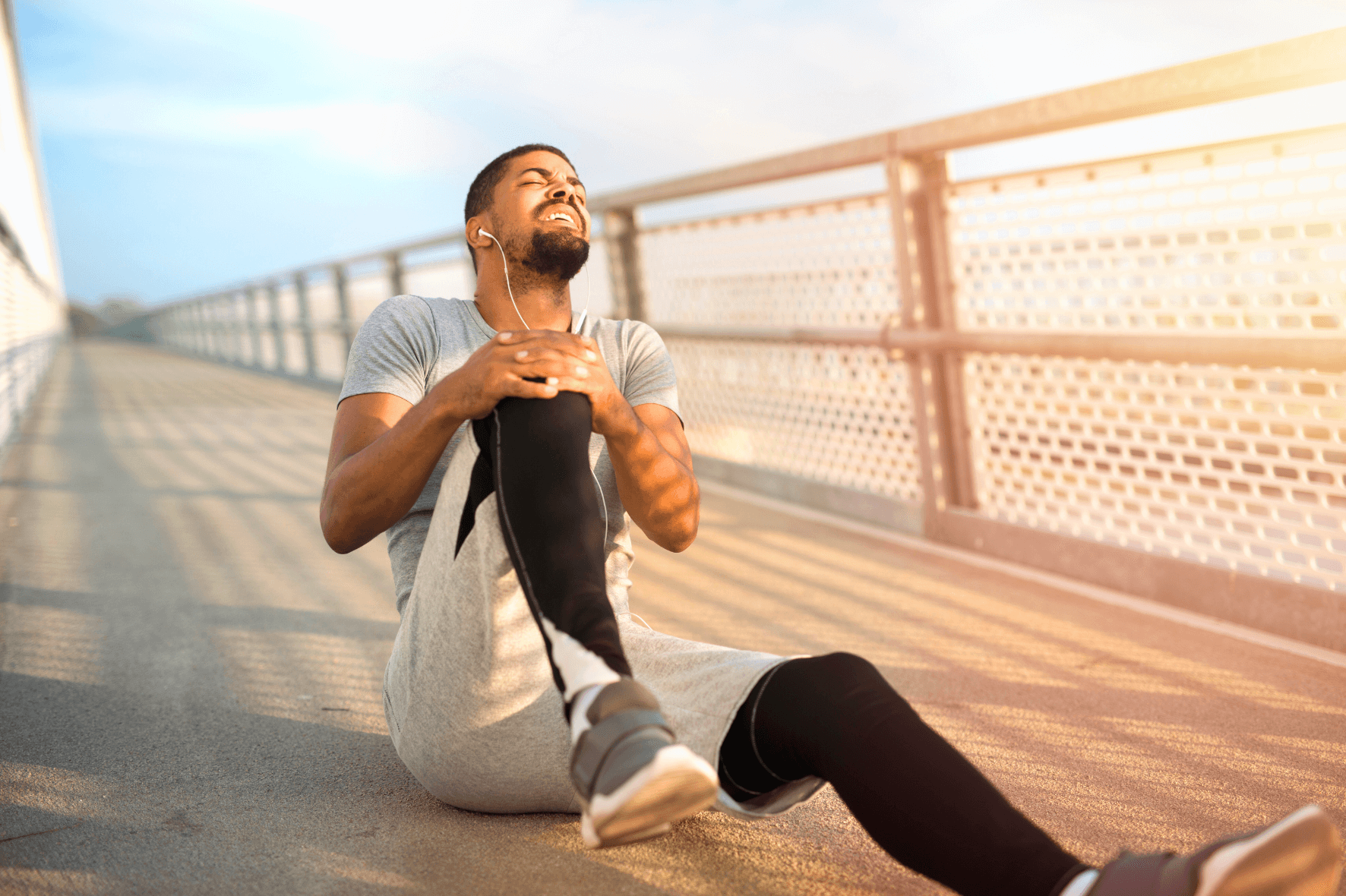
Running Injuries Treatment
How We Help Runners at Alpha Sports Medicine
Our comprehensive care model for running injuries includes:
1. Thorough Assessment
We look beyond the injury site — assessing your posture, running gait, strength, mobility and training habits — to identify the root cause and contributing factors.
2. Hands-On Treatment
Our Osteopaths, Chiropractors and Myotherapists use a range of techniques including soft tissue massage, joint mobilisation, dry needling and cupping to relieve pain and improve tissue quality.
3. Targeted Exercise Rehabilitation
Our Exercise Physiologists prescribe progressive, evidence-based exercise programs that focus on tissue loading, movement control, and performance optimisation for runners.
4. Running Technique and Load Management
Whether you’re training for a half-marathon or returning from injury, we help adjust your training load, improve running technique, and reduce injury risk through smart progression.
Running Injuries Treatment
Why Runners Choose Alpha Sports Medicine
🏃 Multidisciplinary team with experience treating running injuries
🏃♂️ Personalised rehab programs tailored to your goals
🏃♀️ Manual therapy and strength work under one roof
🏃 Convenient locations in Newport, Ascot Vale and Bacchus Marsh
🏃 Servicing the running communities of Yarraville, Altona, Williamstown, Maidstone, Footscray, Spotswood, Moonee Ponds, Melton and Ballan
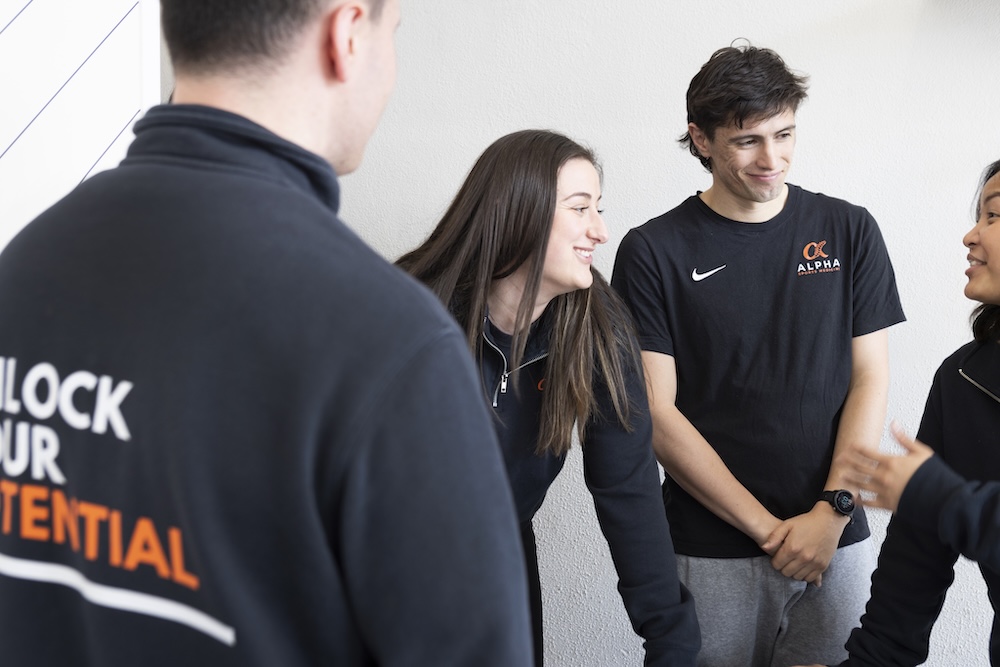
Running injuries are rarely the result of one bad step — they’re usually a sign that something needs to be adjusted. At Alpha Sports Medicine, we help runners understand their body, correct imbalances, and recover with confidence.
Book online or call your nearest clinic today to see how our team can help you return from injury and hit the ground running.
Learn More About Hip Pain
What causes neck pain, and how does osteopathy treat it?
Neck pain can result from factors such as poor posture, muscle strain, whiplash injuries, or degenerative changes in the cervical spine. Osteopathy treats neck pain by using manual therapy techniques to release muscle tension, mobilize stiff joints, and restore optimal function to the neck and surrounding structures.
How can osteopaths help with chronic neck pain?
Osteopaths for neck pain can help by addressing underlying musculoskeletal dysfunctions, improving spinal mobility, reducing pain sensitivity, and restoring overall physical function. Osteopathic treatment aims to break the pain cycle, promote tissue healing, and enhance the body’s self-healing mechanisms.
Can osteopathy be used as a preventive measure for neck pain?
Yes, osteopathy can be used as a preventive measure for neck pain by addressing underlying musculoskeletal imbalances, promoting proper posture and body mechanics, and providing education on ergonomic principles and self-care strategies.
Can stress and tension contribute to neck pain?
Yes, stress and tension can contribute to neck pain by causing muscle tightness, stiffness, and discomfort. Osteopathy can help reduce stress-related tension in the neck and shoulders by releasing muscle tension, improving circulation, and promoting relaxation through manual therapy techniques and stress management strategies.
How long does it typically take to see improvement in neck-related headaches or migraines with osteopathic treatment?
Osteopathic treatment for neck-related headaches and migraines can vary depending on factors like severity of symptoms, the underlying cause of the headaches, and individual response to treatment. Some people may experience significant relief after just a few sessions, while others may require more extensive treatment over time.

